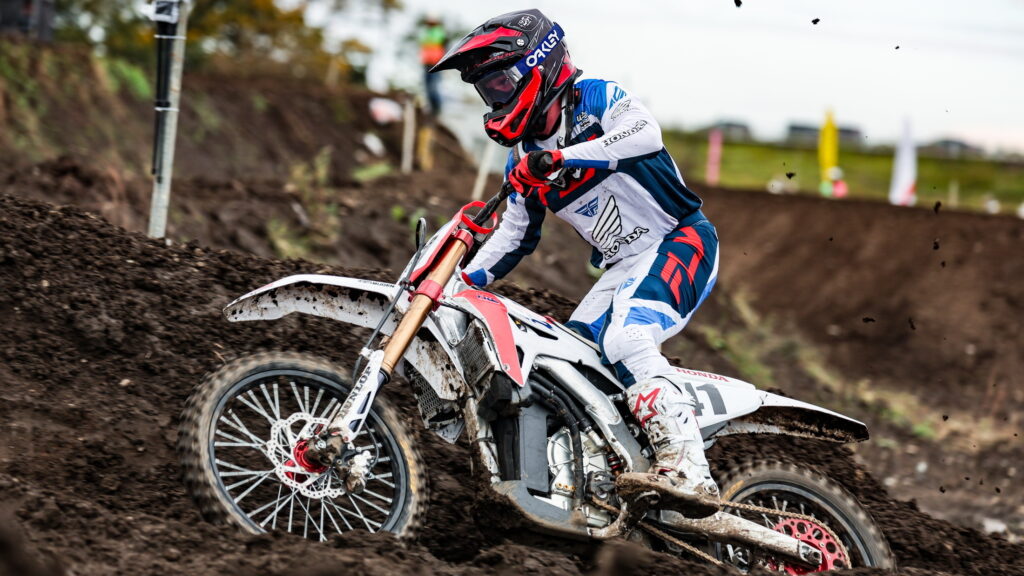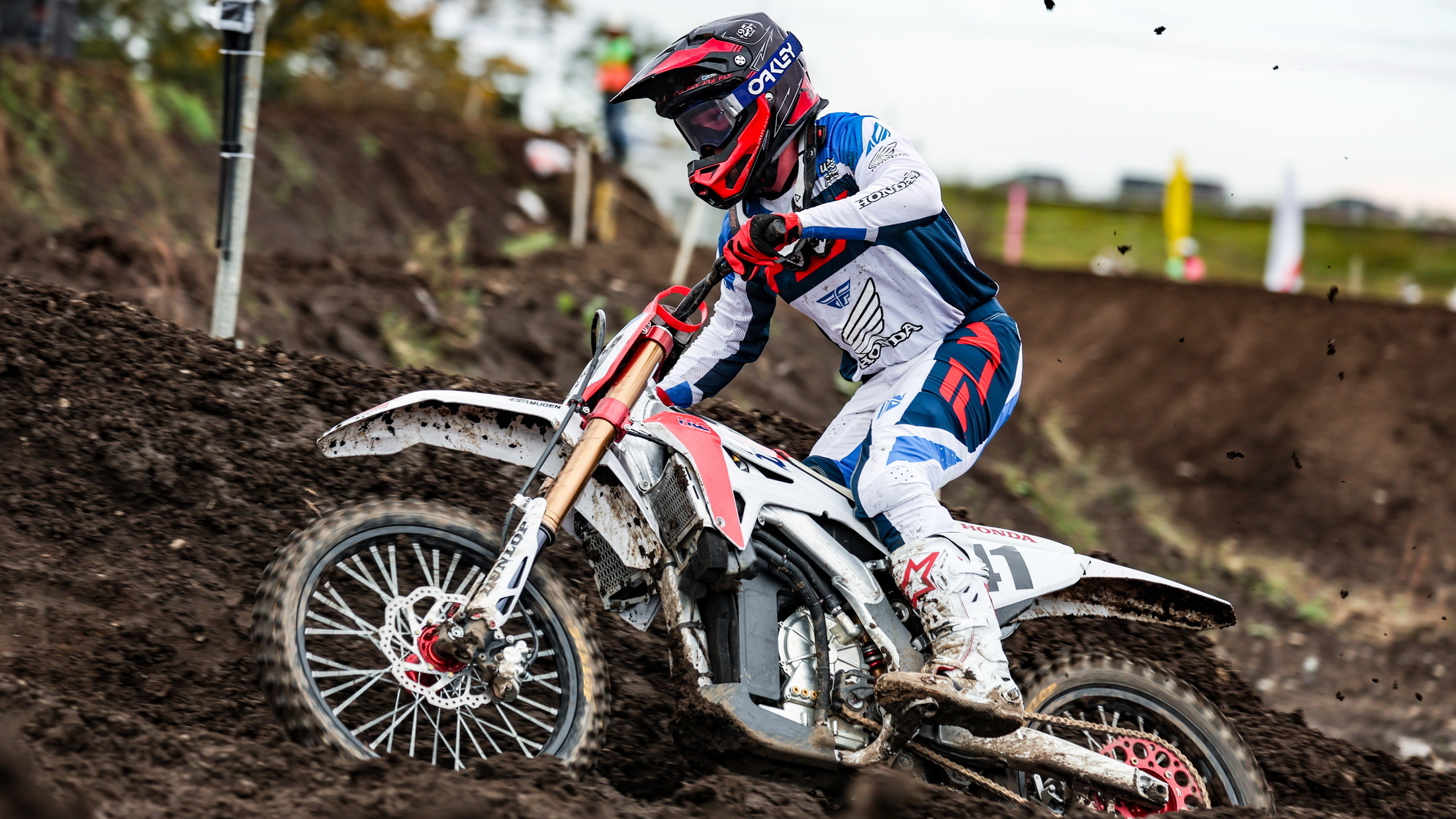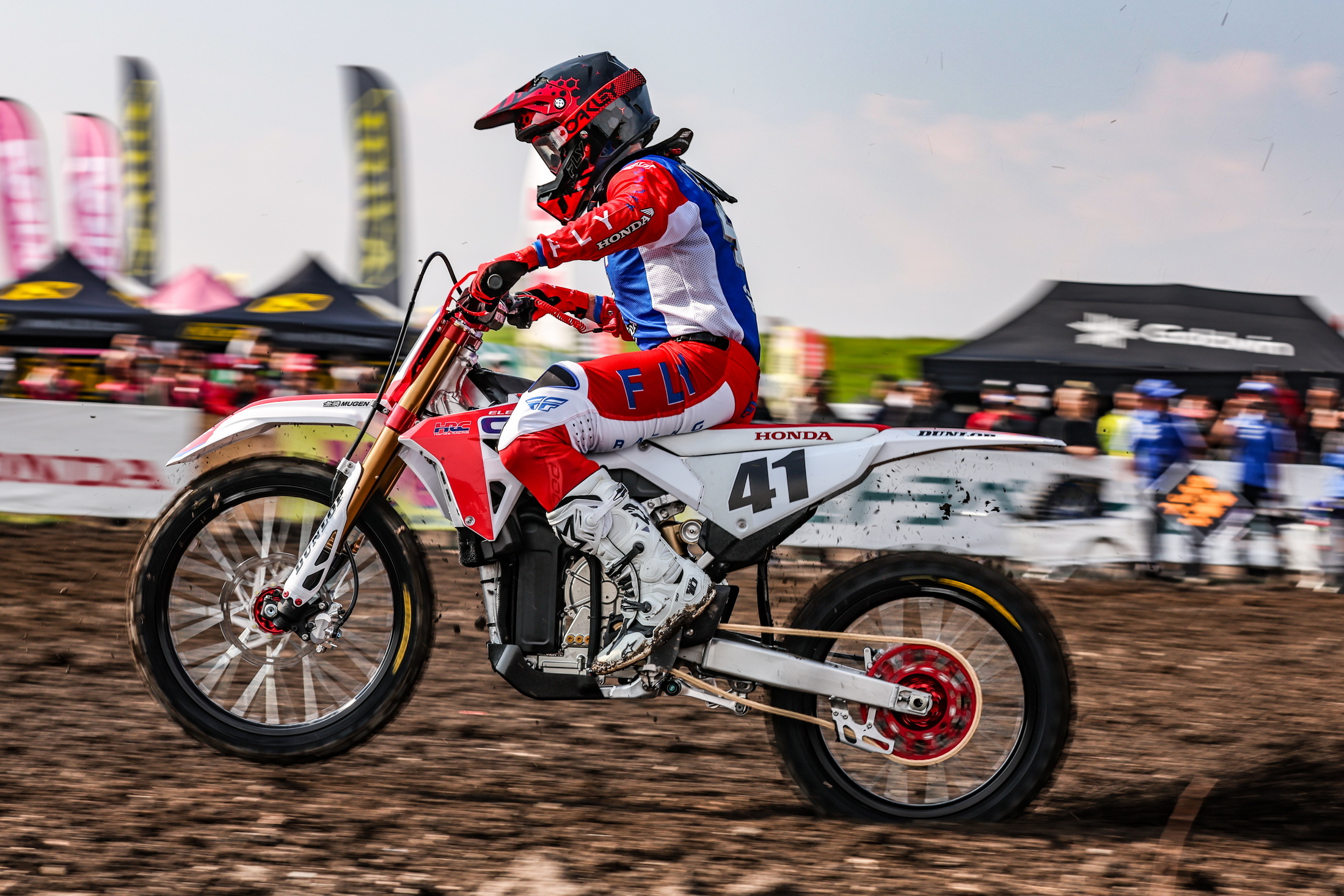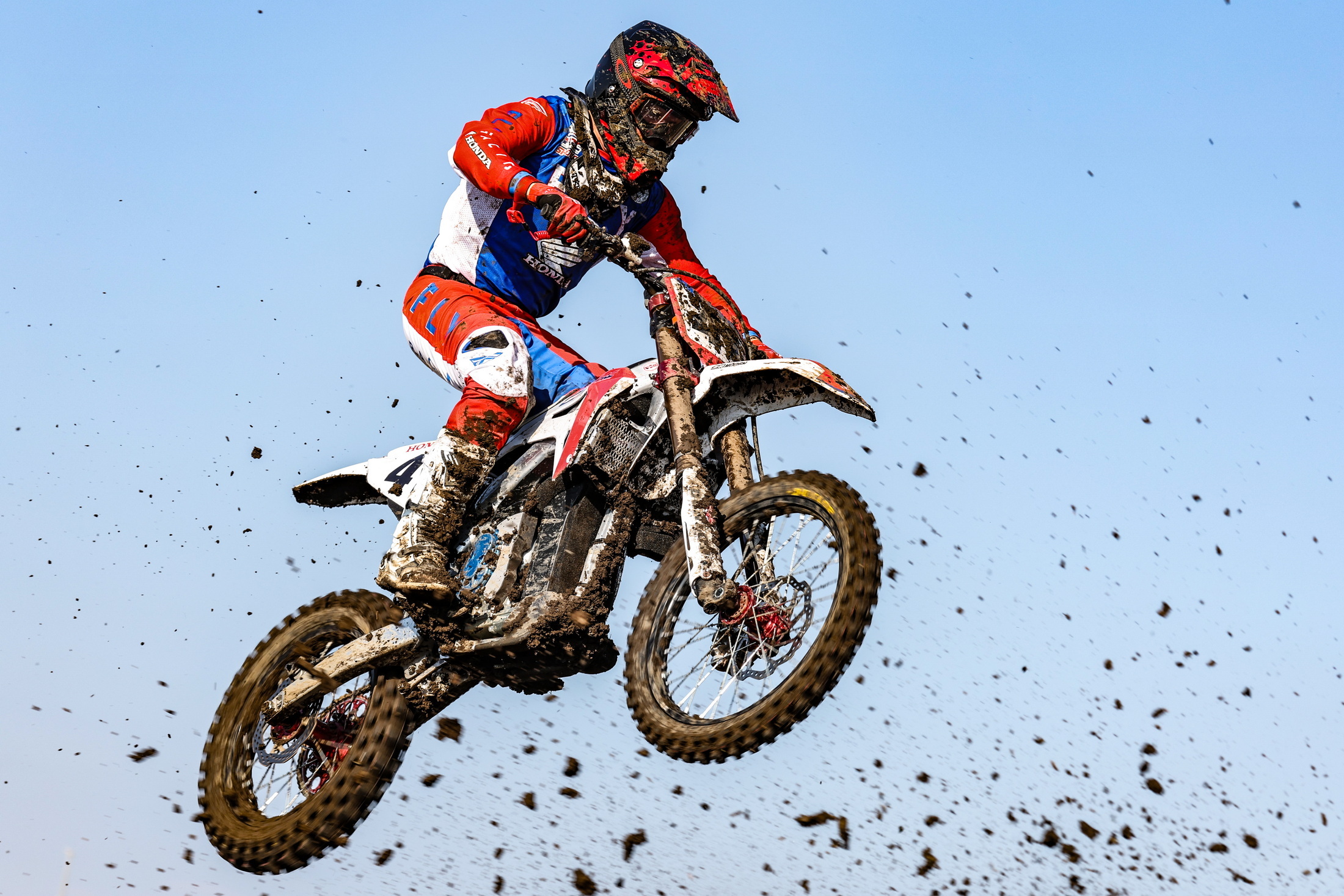Honda is working on an all electric dirt bike, and last weekend it competed in its first official event in the premier IA1 motocross class. Piloted by test rider and Honda advisor Trey Canard, the prototype motorcycle impressed with race-leading pace in its inaugural competition weekend.
The CR Electric Proto was entered as a wildcard competitor in round eight of the All Japan Motocross Championship. Competing against 450cc internal combustion engine machinery, the bike looked fast all weekend. Even though it didn’t end up winning, Canard says that the team was looking to gather data, not silverware at the event.
“This weekend was definitely a big challenge for me, but it was a great race for our development,” said Canard. “Each time I was on the track, we improved the motorcycle and the CR Electric Proto team adapted to the challenge.”
Read: You Can Now Buy A Honda Motocompacto Foldable Electric Scooter For $995

In an early sign of things to come, the CR Electric Proto was the second-fastest bike in Saturday testing. Then, in its first race, Canard was just 0.7 seconds off the fastest lap of the session, and finished a creditable second.
In the following races, Canard mostly found misfortune, crashing out of contention in both sessions. However, he was able to jump out of the gates and into first place in the third race of the weekend, and was expanding his lead before a crash left him uncompetitive.
“We had some shines of brilliance as a team, the starts being one of them, with two of the three holeshots,” said Canard. “I’m disappointed to not finish all of the motos after all of the hard work the team has put in, but I think we showed that the potential of the bike is quite high, especially for our very first attempt at racing.”
Taichi Honda, Team Honda Racing Corporation’s (HRC) manager, said that his team will take what they learned from the bike’s first three-heat day back to factory. That will help with the ongoing development of the CR Electric Proto.
Honda is one of a quartet of motorcycle manufacturers that has signed a memorandum of understanding to develop swappable batteries for powersports vehicles. The goal of the agreement is to standardize EV technology for bikes, mopeds, tricycles, and quadricycles, to help decarbonize the industry.













